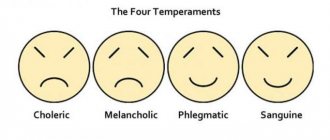Our feelings are not constant. They tend to flare up or fade, grow stronger or weaken, strive for peace or force us to seek adventure. “I have now become stingier in my desires,” this is about the same thing. Where do the patterns for feelings come from and why are they updated? How individual are feelings and how dependent are they on external regulators? Are they born from within or borrowed from the emotional arsenal of the era? In what direction is our emotional culture transforming today? Let's discuss the topic with the candidate of philosophical sciences, deputy dean of the Faculty of Philosophy of Moscow State University Alexey Kozyrev.
Mental shaking leads us to apathy
- Do you feel your feelings changing?
- Yes, sure. Maybe it has to do with age. Although the concept of age has changed somewhat in our era. If in the 19th century a forty-year-old man was considered an old man, now we may not call even a seventy-year-old man an old man. Apparently, age is not a biological concept, but a psychological one. And with age, feelings weaken. Aristotle wrote about this. He has a wonderful fragment in “Rhetoric” where he compares a young man and an old one and says that the old man does not talk about anything for sure, he talks about everything “as if” and “maybe”. That is, the old man is more distrustful than the young man, because he has experienced many disappointments, failures, and betrayals.
I ask the students: “Do you know “Dark Night”, “Oh, the Roads”?” Until some time they said: “We know.” Now they don't know anymore
— This is probably due not only to age, but also to the era in which we live. Do you think our emotional world has changed a lot over the past twenty years?
- He has undoubtedly changed. Today we react to everything differently. Emotions began to lose their sharpness. And this is also because we began to live in social networks, which increased the speed and severity of our emotional reactions. If in the old days we learned some news from the morning newspapers or from a letter received by mail, now we find out almost online. And immediately we plunge into a whirlpool of various emotions. Technological progress is changing humanity’s previous ideas about many things - for example, what is “fast” and “slow”, “close” or “far”. When Catherine II arrived in Crimea, “milestones flashed before her eyes,” although these were “Catherine’s miles” set by Potemkin, which were placed ten miles apart. Today, the “milestones” of information we receive not only flash before our eyes, we simply stumble over them every now and then. And this mental shaking leads us to apathy. We begin to perceive many things with greater indifference than before. Our emotions become dull. But sometimes it still hits us, and we experience emotional shock.
Sinful passions are just a mistake of feelings
— Observing how much anger, aggression, hatred spills out into the same social networks, can we say that we are losing the ability to control our feelings and that this is a sign of the times?
— The outstanding psychologist Lev Semenovich Vygotsky spoke about the dual unity of intellect and emotions. This is such a contradictory couple that develops dynamically. The higher the intelligence, the more complex and varied the emotions. Emotions are never rational, but they are regulated by the intellect. Today this regulation is increasingly being lost. And in this sense, civilization, no matter how high its technological level, is replaced by barbarism. Overwhelm by emotions uncontrolled by the intellect is a sign of savagery. Today we feel this savagery more than ever.
— According to your observations, in what ways are our feelings becoming poorer today, and in what ways are they becoming richer?
— It seems to me that there is a standardization of feelings. A certain pattern in experiences is set. Remember the emotional reaction from Facebook moral guardians when people painted their avatars in certain flag colors after terrorist attacks committed in certain countries or institutions. Or assessments of some events that are far from unambiguous, for example, the transfer of St. Isaac's Cathedral. A person thinks differently than me, has the audacity to not coincide with a certain political or ideological mainstream - which means he needs to be banned, defriended, etc. Or let's take art. What is the difference between a real work of music, painting, theater, cinema? The fact that it evokes different, sometimes contradictory, and sometimes even mutually exclusive emotions. But mass, or box office, art presupposes an unambiguous reading and an unambiguous emotional reaction to a painting or performance. Fellini's films may or may not have enough fans, but a Hollywood blockbuster should appeal to everyone. Is this bad? Maybe not. Ancient tragedy also presupposed a certain emotional program; a person had to experience purification from passions through alternating affects of fear and compassion. The ancient tragedy has been replaced by a modern blockbuster. But the complex of feelings that a person experiences at the exit has not become more complicated, but simplified compared to the fifth century BC.
- Then, perhaps, we can say that our feelings depend on what cultural models we are guided by?
- Yes, sure. Russian philosopher Ivan Ilyin said that a person should strive to enlighten his sensuality. He has such a concept - enlightened sensuality.
- At the same time, there are eternal feelings - love, hatred, jealousy, envy... They will not disappear anywhere. But they can transform under the influence of time, can't they? Do we love differently today than we loved in the 19th century? Are we jealous otherwise? Are we jealous differently?
- Yes and no. If we look at the story of Heloise and Abelard, we will see that Abelard did not feel any special love in the romantic sense of the word for Heloise. He did not write her knightly poems, did not sing serenades under the balcony, did not suffer languidly. It was the relationship of a monk, a theological teacher, and a student, a relationship that grew out of erotic temptation. So patterns of feelings (in this case, love) are probably changing. The content of these models also changes. But not so much that the concept itself changes. After all, reading today about Eros from Plato, we are able to understand what the wings are that grow on the back when a person falls in love, we are able to understand how a person does not find peace in his desire to see his loved one. We can understand what love is by reading the poetry of Ancient Egypt. These feelings seem strange and incomprehensible to us, but in fact, here we are talking more about the ritualization of feelings, that is, about what accompanies them (for example, about methods of courtship), rather than about the feelings themselves. Let us remember “Mozart and Salieri” by Pushkin. When in the first monologue Salieri says that he envies Mozart, he hates himself for his envy, but this feeling overwhelms him. In the same way, jealousy is also one of the most powerful feelings. No matter how much a person explains to himself that jealousy is a low, vile feeling, he still begins to be jealous and secretly think about how to take revenge on his opponent. I think that it is the ritualization of feelings that is changing - what is the atmosphere of a feeling, a kind of its shell. The feeling itself remains the same.
Of course, there are cultural, political, social conditioning of emotions, but there are also emotions themselves. Whatever you say, man is a psychophysical being. He is characterized by what Descartes called the passions of the soul. These passions can also be sinful. Although “sin” in translation from Greek is a mistake. And sinful passions are just a mistake of feelings, a mistake of human behavior.
Your feelings don't deceive you
Ecology of life. Psychology: Double messaging is when two conflicting messages are broadcast at the same time. For example, non-verbal language conveys one thing, but words convey the exact opposite...
Continuing the topic of manipulation, I want to reveal a concept that in psychology is called “double message .
Double messaging is when two conflicting messages are broadcast at the same time. For example, non-verbal language conveys one thing, but words convey the exact opposite.
To the question “Will you have some candy?” I once received in response a hand extended to the candy, and the verbal accompaniment of this gesture: “no.”
This example is so prominent that in this case it is easy to detect a contradiction.
But the double messages that often permeate communication between people often seem much less noticeable. For example, parents may tell their child, “You must obey your elders,” and at the same time, “Why are you so lacking initiative at school? We must be active!”
Or “know that I love you and will accept any of you,” but in the case of actions that are not pleasant, the parent/partner may emotionally distance or otherwise non-verbally reject/punish.
Or here is a textbook example of the formation of schizophrenia: a mother comes to the hospital to see her child, and when he reaches out to her, she nonverbally demonstrates deviation. And when the child reacts to the withdrawal, stopping his impulse to hug, the mother says offendedly: “You’re not happy to see me.”
In general, double messages are when the brain receives the message that the same thing is both black and white at the same time.
What is the usual reaction to double messages? This is a very interesting place for me. Because a lot depends on the contexts in which everything happens.
For example, flirting can die without double messages. If the inviting selfless “oh, go away, otherwise I won’t be able to resist kissing you” is replaced with a direct message “don’t go, I’m planning to kiss you,” then a certain element of the game inherent in flirting goes away along with the excitement that flirting generates. After all, flirting is a dance built on spontaneous coming closer and then moving away, a kind of game where excitement only grows if you sense when to jump away, and when to unexpectedly but pleasantly approach.
Yes, and messages like “oh, you fool, stop making me laugh,” while fully conveying the serene pleasure of what is happening, are quite harmless. “Go away, you disgusting one!” - to the same steppe.
But if flirting is based on aggressive and ambivalent messages, then things start to smell like frying. For example, “flirting” (I can’t describe it without quotation marks, because it’s more like an aggressive attack) can be built on idealization, which suddenly turns into devaluation. For example, a non-verbal transmission of strong sympathy and admiration, and with a response and a desire for rapprochement, shrapnel of devaluation may follow: “You’ve opened your mitten, you scoundrel!” Or sexual seduction (for example, by revealing clothing, movements), and when a man approaches, showering him with coldness and disdain. Or the verbal designation “you are very important to me, I need you,” and in actions avoidance of meetings, etc.
So, in such contexts, double messages most often pump up excitement . The main thing here is to have time to hear yourself and not confuse one feeling with another. And this happens very, very simply. After all, the double message itself provokes ambivalence of feelings, their inconsistency.
For example, the level of sensory arousal from anger can be very similar to the level of sexual arousal. These two feelings can arise simultaneously, but due to the similarity in the level of this arousal, they can become confused. And if you don’t have the skill to subtly hear yourself while excitement is overwhelming, then replacing anger (which calls for distance) with sexual arousal (which calls for rapprochement) is like sending two faxes. Moreover, experiencing anger is less pleasant than sexual arousal, and it is at this moment that the most unpleasant and dangerous thing begins, whose name is splitting .
Splitting is a process when the psyche, unable to find a way to find a compromise between conflicting impulses, isolates them from each other, thus resolving the internal conflict. And everything would be fine, but this mechanism is very, very expensive. Mainly because splitting is the basis of all addictions (both chemical and emotional).
It is important to say here that splitting is a very common thing. I don't know a single person who doesn't have clefts. To one degree or another, everyone has such protection (and maybe there are people without this mechanism at all, but I did not have the chance to meet them).
For example, when I go to bed late at night, I can set an alarm for myself early in the morning, being absolutely sure that in the morning I will wake up and have time to do exercises before work. When the alarm clock rings at 6 am, I am perplexed: how can you think of such nonsense as getting up at 6 am to exercise???
All addictions work on the same principle: I smoke and I know that smoking is harmful to my health. And when I put out a cigarette, I often think “ugh, what disgusting, how disgusting, boo.” But the moment I feel the burning urge to smoke, I lose touch with the sensation of how I feel when I put out the cigarette. I strive to relieve this itchy excitement, annoyingly sounding like “I want to smoke, I want to smoke.” And if myself or some other person tells me that it is harmful, then somewhere inside I feel shame (which in itself is a short circuit due to ambivalence), and this only intensifies my impulse to smoke.
That is, this conflict between two impulses does not have a layer called “ego function”.
In simple terms, in this place in the psyche, for some reason (and there are always reasons), a resource has not been formed that allows creative adaptation and each time finding a unique and environmentally friendly way to satisfy the needs that lie at the heart of every aspiration.
The same pattern is used to build dependency in relationships.
Dependence is always accompanied by ambivalence, that is, contradictory feelings - you want to run away, then be together forever, then hatred clouds your eyes, then unearthly love, then you want to blame, then the feeling of your own guilt covers your head. And all this happens alternately, each state seems clear, transparent and “forever”.
How to grow this wonderful ego function, which becomes a conductor between these two parts isolated in splitting, giving integrity and freedom from addictions?
This is the most important question in psychotherapy on the topic of splitting. And, of course, articles alone cannot grow it. Depending on the degree of splitting, the integration process can sometimes take years. Sometimes it is irreversible, if we talk about deep pathological processes. But more often than not, integration is quite possible, although not at all quickly. Because rebuilding something that has been crumbling for years is not a quick task. It is not as fast as the formation of this mental device. After all, none of us are born split. You need to be in an environment with contradictory messages for a long time in order to adapt to it and still split. And this, most often, takes more than one year of long training.
But I will still try to briefly describe the general directions of movement in this topic.
1. The very discovery and recognition of these two contradictory impulses within oneself already contributes to personal integration.
The most important enemy on this path is shame, the prohibition to notice such manifestations in oneself. Although, such mental protection is not a person’s choice, it is a consequence of adaptation to the environment where he was formed. And it is impossible to be held responsible for this. But it is possible to assume to yourself that yes, now this is parsley and I can do something about it, this is my responsibility.
2. After recognizing these two contradictory impulses, their simultaneous integration. That is, to notice and maintain attention and contact with these two impulses at the same time. That is, not only at the intellectual level to know that these two impulses exist, but at the same time to feel that you want, for example, to run and get closer, that there is anger, and love, and resentment, and gratitude.
Any departure into some kind of polarity (for example, focusing only on how wonderful everything is) inevitably entails a rollback in the opposite direction - from idealization to devaluation and back. But any pendulum, swinging, always passes the middle. You can remember this middle. You can learn to notice it when there is a transition from one state to another.
This is important because it is impossible to separate (become integral, and therefore independent) from a person or habit if you consider him/her bad or categorically good/good. It is impossible to separate yourself from the very good, because if you put a white coat on someone or something (that is, project your “goodness” onto them), then you will inevitably feel up to your eyeballs in shit next to them. It is impossible to separate yourself from the bad, because again a part of yourself is walking somewhere, as if outside - you are standing in a white coat, and your own impulses and qualities are projected onto another (or onto something), usually expressed in “you are a fool and cannot be cured.” . Any extreme is a call to look for the opposite and at the same time keep it not only on the intellectual plane, but also on the sensual plane.
3. Usually, when a stable skill is formed to remain in contact with two contradictory needs/impulses/feelings simultaneously, creative adaptation (the ability to each time find a unique and environmentally friendly way out of the tension created by this contradiction) is born “by itself.”
That is, the very ability to simultaneously remain in contact with two contradictory impulses/needs/feelings already suggests that there is a third element - that part with which you observe the other two and remain in contact with all parts of yourself, withstand yourself, accept and can regulate environmentally friendly for yourself and others. Therefore, at this stage, it is important to simply consciously notice yourself in those moments when you manage to maintain this balance in contact with all parts of yourself. A clear feeling and recognition of this internal balance (and at first it is experienced as a strong tension, because this “muscle”, that is, a skill, is just being formed) allows you to turn to it voluntarily, consciously, which in itself is quite a powerful resource.
4 point. It is the last one here, but in fact it is the first and most important - the development of sensitivity to one’s own feelings and impulses. Your feelings do not deceive you. They always tell you what is important to you now, like a compass, they guide you in those directions that allow you to hear, understand, and satisfy yourself.
Also interesting: Julia Gippenreiter: Unconscious processes
Two poles: Arrogance and self-doubt
Anxiety, anger, confusion, stupor, a sense of insanity, or even a physical sensation of nausea are natural and appropriate reactions to double messages. If you hammer them down, overwrite them, or ignore them, you can lose a piece of yourself. If you respect your feelings, treat them with attention and sincere interest, they will always orient you in what is happening inside you and help you maintain integrity. published
Author: Ksenia Alyaeva
PS And remember, just by changing your consciousness, we are changing the world together! © econet
Each generation has its own encyclopedia of feelings
— My students sometimes puzzle me with their reactions to something. Is it possible to talk about the emotional experience of a generation?
- I think yes. Each generation has its own emotional experience and its own encyclopedia of feelings. I recently returned from Kazan, watched a wonderful play “Winter” based on the play by Evgeny Grishkovets at the Youth Theater on Bulak. The heroes of the play are two soldiers who, in the end, die absurdly while performing a non-combat mission. The whole performance is a reminiscence of childhood, a stream of memories about the New Year tree, Santa Claus, the Snow Maiden, about buying a bicycle... This is a very strong emotional picture that appears before the eyes of a person of my generation. Once, after a lecture, a girl came up to me, dissatisfied, and said: “What are you telling us here? You retold everything that Grishkovets said on Thursday at his meeting with the audience.” I am not familiar with Grishkovets, I have never seen or heard of him, and I cannot say that this is a writer who fundamentally changed my personality. But in some ways we coincide with him. And this “something” is a common emotional experience, a common tone of experiences and feelings, a common, slightly detached, ironic view of some things. The emotional experience of my generation was formed at the May Day demonstrations, in the Komsomol, in the understanding of the truth of the teachings of Marx, Engels and Lenin. And the generation born ten to fifteen years after us is already different. It grew up instilled with other values, it acquired a different emotional experience. Sometimes on social networks I find pictures where some things from our childhood appear. Memes like these are a great way to emotionally return to the happiest time of your life. The French philosopher Gaston Bachelard even has such a concept - “imagination towards childhood.” It is there, in childhood, that our fantasies, our sensory world, and our attitude to life are formed. Probably, by this common emotional experience we can identify “our own”, distinguishing them from “not our own”. I am now observing this generational community through likes on Facebook. For example, someone posts a photo of the Moscow area where he was born and raised, and I can predict who will like this photo. If Facebook had existed in my youth, it would probably have posted the Cathedral of Christ the Savior, the Sukharev Tower, the Red Gate... Because it was nostalgia for the lost antiquity that we learned about at the end of the Soviet era. And this was also part of the emotional experience of my generation. I was once in Samara and talked with the abbess of the monastery, who told me about the youth: “Okay, they don’t go to churches, but they don’t sing the songs that we sang in our time.” Indeed, songs are one of the tests of emotional community. I ask the students, “Do you know Dark Night? Do you know “Oh, roads”? Until some time, probably until the early 2000s, they said: “We know.” Now they don’t know anymore.
Ambiguous opinion
There are cases when an opinion does not have a clear position. On the one hand, a person seems to support certain events, but on the other hand, he understands that what is happening is not entirely correct. In this case, we treat the event ambiguously. This is characterized by the inability to clearly define a position on a particular issue. For example, many people have an ambivalent attitude towards Soviet times.
On the one hand, at that time people were more confident in their future, because Soviet ideology contributed to the emergence of trust in the government and the belief that the country was moving in the right direction. On the other hand, phenomena such as the “Iron Curtain”, the extermination of the intelligentsia and other negative events darken the overall picture.











